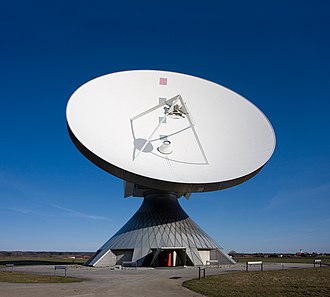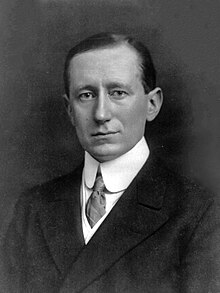The Telecommunication Portal

Telecommunication, often used in its plural form or abbreviated as telecom, is the transmission of information with an immediacy comparable to face-to-face communication. As such, slow communications technologies like postal mail and pneumatic tubes are excluded from the definition. Many transmission media have been used for telecommunications throughout history, from smoke signals, beacons, semaphore telegraphs, signal flags, and optical heliographs to wires and empty space made to carry electromagnetic signals. These paths of transmission may be divided into communication channels for multiplexing, allowing for a single medium to transmit several concurrent communication sessions. Several methods of long-distance communication before the modern era used sounds like coded drumbeats, the blowing of horns, and whistles. Long-distance technologies invented during the 20th and 21st centuries generally use electric power, and include the telegraph, telephone, television, and radio.
Early telecommunication networks used metal wires as the medium for transmitting signals. These networks were used for telegraphy and telephony for many decades. In the first decade of the 20th century, a revolution in wireless communication began with breakthroughs including those made in radio communications by Guglielmo Marconi, who won the 1909 Nobel Prize in Physics. Other early pioneers in electrical and electronic telecommunications include co-inventors of the telegraph Charles Wheatstone and Samuel Morse, numerous inventors and developers of the telephone including Antonio Meucci and Alexander Graham Bell, inventors of radio Edwin Armstrong and Lee de Forest, as well as inventors of television like Vladimir K. Zworykin, John Logie Baird and Philo Farnsworth.
Since the 1960s, the proliferation of digital technologies has meant that voice communications have gradually been supplemented by data. The physical limitations of metallic media prompted the development of optical fibre. The Internet, a technology independent of any given medium, has provided global access to services for individual users and further reduced location and time limitations on communications. (Full article...)
Selected article -
The history of the Internet has its origin in the efforts of scientists and engineers to build and interconnect computer networks. The Internet Protocol Suite, the set of rules used to communicate between networks and devices on the Internet, arose from research and development in the United States and involved international collaboration, particularly with researchers in the United Kingdom and France.
Computer science was an emerging discipline in the late 1950s that began to consider time-sharing between computer users, and later, the possibility of achieving this over wide area networks. J. C. R. Licklider developed the idea of a universal network at the Information Processing Techniques Office (IPTO) of the United States Department of Defense (DoD) Advanced Research Projects Agency (ARPA). Independently, Paul Baran at the RAND Corporation proposed a distributed network based on data in message blocks in the early 1960s, and Donald Davies conceived of packet switching in 1965 at the National Physical Laboratory (NPL), proposing a national commercial data network in the United Kingdom. (Full article...)
General images
Things to do
 |
Here are some tasks awaiting attention:
|
Selected biography -
Guglielmo Giovanni Maria Marconi, 1st Marquis of Marconi GCVO FRSA (Italian: [ɡuʎˈʎɛlmo marˈkoːni]; 25 April 1874 – 20 July 1937) was an Italian inventor, electrical engineer, physicist and politician known for his creation of a practical radio wave–based wireless telegraph system. This led to Marconi being credited as the inventor of radio, and winning the 1909 Nobel Prize in Physics with Karl Ferdinand Braun "in recognition of their contributions to the development of wireless telegraphy". His work laid the foundation for the development of radio, television, and all modern wireless communication systems.
Marconi was also an entrepreneur, businessman, and founder of The Wireless Telegraph & Signal Company in the United Kingdom in 1897 (which became the Marconi Company). In 1929, Marconi was ennobled as a Marchese (marquis) by King Victor Emmanuel III of Italy, and, in 1931, he set up Vatican Radio for Pope Pius XI. (Full article...)
Did you know (auto-generated) -

- ... that X-radiographs of Jan Lievens's circa 1629–1630 Self-Portrait showed that the artist made "transformative revisions to his appearance" in the portrait?
- ... that in Jackson, Tennessee, there was a 50–50 chance a reference to Dixie was about a radio station?
- ... that Nathan Safir, general manager of Texas radio station KCOR for 44 years, was credited with being a pioneer in Spanish-language broadcasting in the United States?
- ... that "on a good day", a Minnesota radio station could reach St. Peter?
- ... that BBC radio broadcaster Venu Chitale taught listeners how to cook without meat when it was rationed during the Second World War?
- ... that Colin Mackay, the political editor at Scottish Television, was "very sad" when Colin MacKay, the political editor at Scottish Television, died?
Related portals
Topics
Subcategories
Associated Wikimedia
The following Wikimedia Foundation sister projects provide more on this subject:
-
Commons
Free media repository -
Wikibooks
Free textbooks and manuals -
Wikidata
Free knowledge base -
Wikinews
Free-content news -
Wikiquote
Collection of quotations -
Wikisource
Free-content library -
Wikiversity
Free learning tools -
Wiktionary
Dictionary and thesaurus



























































































